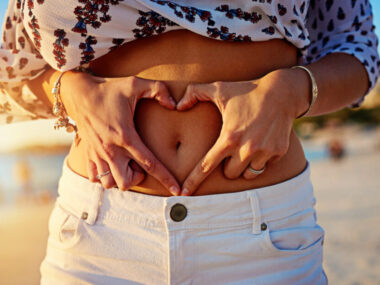Drinks that claim to boost energy naturally appeals to a sleep-starved population, but just how effective and safe are they? What you’ll learn energy drinks may surprise you.
It’s nothing new that these days people are chronically tired. According to a Gallup poll, 1 in 3 adults, fail to get the minimum seven hours of night sleep recommended by the American Academy of Sleep Medicine, and as many as 70 million have a sleeping disorder, according to the American Sleep Apnea Association.
This may explain the crave people now have for energy drinks. These beverages, which claim to boost energy, increase physical stamina, and improve mental alertness, rank just behind multivitamins at the top of the list of the most popular supplements taken by teens and young adults, reports the National Center for Complementary and Integrative Health (NCCIH).
Despite their popularity, however, there are many questions about whether these drinks actually deliver on those claims, and whether they do so safely. Different bottled energy drinks contain different levels of caffeine and other stimulants, and sometimes other ingredients. You’re not alone if you’ve ever wondered if energy drinks are bad for you — and if that’s the case, so just how bad?
“If someone is struggling to get adequate, consuming an energy drink may give them an acute jolt of energy,” says Sam Schleiger, RDN, a functional medicine registered dietitian and the owner of Simply Nourished Functional Nutrition in Elkhorn, Wisconsin. But that temporary fix may cause more harm than good by interfering with sleep and creating a vicious cycle. Plus, there are a number of health conditions that have fatigue and poor sleep as symptoms, which is why Schleiger recommends consulting a healthcare practitioner to investigate potential root causes and rule out any underlying conditions.
So, What Exactly Is an Energy Drink?
The beverage world is constantly crowded with all kinds of functional drinks, including prebiotic sodas and adaptogenic beverages that boasts of herbal ingredients such as CBD and ginseng. Energy drinks are not the newest in the category, but they are among the most popular. In 2023, U.S. sales of energy drinks totaled around $18.5 billion, according to Statista.
These energy boosters, which include brands like Monster, Bang, Rockstar, and Red Bull, tend to come in cans with sleek, striking packaging and are often formulated with caffeine and other stimulants. Sports drinks, on the other hand, may appear similarly sleek and brightly colored, but are often bottled and designed to appeal to more active consumers with ingredients that promote hydration and replace electrolytes.
Under the U.S. Food and Drug Administration (FDA) classification system, sports drinks are grouped with other beverages as “food” and subject to strict labeling laws, while energy drinks are considered supplements, which have more lax labeling and safety regulations. But the FDA leaves the decision of whether a product is a sports drink or an energy drink up to manufacturers, according to the United States Anti-Doping Agency. There is no official review procedure for these labeling practices, either, which means there are a lot of products on shelves that could contain questionable ingredients or unsafe amounts of them.
Energy drinks can be sold in 12- or 16-ounce (oz) cans or bottles, like sodas, as well as 2 or 2.5 oz sizes, commonly called energy shots, per the NCCIH. These smaller products are more concentrated and often have an amount of caffeine similar to that in a full-size drink.
What Is The Content of Energy Drinks?
Energy drinks are all formulated differently, so the ingredients and amounts vary greatly among brands, but all provide an energy boost via some kind of stimulant, usually caffeine. The amount can vary greatly: For example, an 8 oz cup of coffee usually has 100 milligrams (mg) of caffeine, while a 16 oz energy drink can contain anywhere from 70 to 240 mg, reports the NCCIH. (A 12 oz can of caffeinated soda clocks in at 35 mg.)
Numerous energy drinks contain other stimulants, including those labeled “natural,” but that doesn’t necessarily make them any healthier. Guarana, one common ingredient in energy drinks, is a plant extract that has been used as a stimulant and contains caffeine, but has also been linked to tremor, jitteriness, agitation, confusion, hypertension, and dehydration in large doses, per the National Library of Medicine. Yohimbe is another common ingredient added to energy drinks. It comes from an evergreen tree in western and central Africa and is reported to enhance athletic performance, weight loss, blood pressure, and more, but there is little research on the truth of those claims, per the NCCIH.
Energy drinks also tend to be high in sugar — it’s frequently listed second after water among the ingredients, reports Harvard T.H. Chan School of Public Health. The original Green Monster Energy drink, for example, contains 160 mg of caffeine and 54 grams (g) of sugar in a 16 oz can. That amount far exceeds the American Heart Association’s recommendation of no more than 36 g or 9 teaspoons (tsp) of sugar a day for men, and 25 g or 6 tsp per day for women.
Sugar provides energy, but not the healthiest kind. Too much sugar can have negative health consequences and can lead to heart disease, obesity, fatty liver disease and more, according to the findings of an umbrella review published in BMJ in April 2023. The results also show that consuming sugar from sodas, energy drinks, or refined carbs leads to an increase in glucose in the bloodstream that spikes energy before leading to a crash, which means sugar isn’t a sustainable energy boost.
Nutritional Setbacks
All the sugar in energy drinks is known to be problematic for a healthy diet. But a sugar-free energy drink is no better solution, either. A study published in BMJ in 2022 showed a link between artificial sweeteners, including aspartame, acesulfame potassium, and sucralose, and an increased the risk of cardiovascular diseases. In 2023, the World Health Organization made an official recommendation against the use of non-nutritive sweeteners, citing a lack of evidence to support their use for weight loss or to reduce the risk of chronic diseases, and even suggested potential undesirable health effects from their long-term use. In spite of this evidence, the FDA maintains that sugar substitutes are safe.
Too much caffeine and other stimulants present in energy drinks can also have dreadful health effects. Many energy drinks contain high levels of caffeine or combine various stimulants, and aren’t required to label the exact quantity, so it can be difficult to know exactly how much you’re consuming, per the NCCIH. The FDA advises people not to consume more than 400 mg of caffeine per day, so in one energy drink you might ingest more than half the suggested daily limit.
How Much Is Safe to Drink?
Because of the high amount of caffeine and other stimulants, energy drinks aren’t beverages to drink regularly. “While I don’t often recommend it, consuming an occasional energy drink in moderation is generally considered okay for most people,” says Schleiger. She says “occasional” can be subjective and may mean once a week or only a few times a month, depending on the person.
It’s important to know if you have any health conditions that contraindicate excessive amounts of caffeine. “High blood pressure, insomnia, anxiety or depression are a few conditions when an overload of caffeine can work against you,” says Sylvia Klinger, RDN, the founder of Hispanic Food Communications in Hinsdale, Illinois.
If you suffer from insomnia, avoid reaching for an energy drink as a means to stay alert. “Individuals with insomnia or other sleep disorders should avoid consuming energy drinks, especially in the late afternoon or evening, to prevent further disruption of sleep patterns,” says Schleiger.
She points out that the effects of energy drinks can vary from person to person, and those with specific health concerns may be more susceptible to adverse reactions. If you have a health condition and are uncertain if consuming energy drinks is a good idea, speak with a medical professional first. Anyone who is pregnant or nursing, or who has a sensitivity to caffeine, is advised to avoid energy drinks as well.
Even if you don’t have an underlying health condition, drinking too many energy drinks can cause health issues. “Excessive consumption of energy drinks can lead to negative health effects, including increased heart rate, high blood pressure, insomnia, anxiety, and digestive issues,” says Schleiger. “Some individuals may be more sensitive to caffeine and experience these effects at lower doses.”
Like other caffeinated beverages, energy drinks are not recommended for children younger than 12, according to the American Academy of Pediatrics, which also states that teens should avoid consuming them. Despite these warnings, many energy drinks are marketed to these very age groups. The brand Prime Energy came under fire for targeting children, NBC News reported.
“Children and teens with certain health conditions, such as heart conditions or anxiety disorders, may be more susceptible to the negative effects of energy drinks,” says Schleiger. “Parents should consult with healthcare providers to determine if such beverages are safe for their child.”
Conclusion
Now you know why energy drinks aren’t a healthy beverage choice for regular consumption. There are better and more natural ways to boost your energy and manage your chronic tiredness other than reaching for this caffeine-spiked drink.





